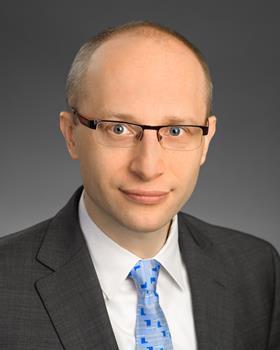The PRI is delighted to welcome the following new members to the Academic Network Advisory Committee. They bring a wealth of expertise from academia, policy and investment practice.
Jason Hsu
Jason Hsu is founder and CIO of Rayliant Global Advisors and Chief Economist of East West Bank.

Rayliant develops innovative quantamental strategies that bring together elements of behavioural finance, data science and local market insights. Rayliant has US$17.8 billion in assets managed using its strategies as of Dec 31 2023. Jason also co-founded Research Affiliates, a smart beta and asset allocation leader with over US$132bn in assets managed using its strategies.
Jason sits on the editorial board of the Financial Analysts Journal, the Journal of Investment Management, the Journal of Investment Consulting and the Journal of Index Investing. He is an adjunct professor of finance at UCLA Anderson School of Management, and a visiting professor at Tsinghua University (China) and Kyoto University (Japan).
Jason has published more than 50 journal articles and is a contributing author to nine handbooks in finance and economics. He has won two Graham and Dodd Scroll Awards; one Graham and Dodd Reader’s Choice Award; one Graham and Dodd most prestigious award ; three Bernstein Fabozzi / Jacob Levy Awards; and three William F Sharpe Awards. He also coinvented the Fundamental Index, awarded best index by Global Pensions magazine in 2007, 2008 and 2009.
Jason received his PhD in finance from UCLA Anderson School of Management. He received his MS from Stanford University and BS from the California Institute of Technology.
Q&A
What are the key challenges to RI?
One of the biggest challenges to responsible investing is how politicised it has become. It is no longer framed as doing the right things alongside risk-return optimisation considerations. People have lost sight of the basic tenet of RI, which is to avoid supporting firms with measurably negative externalities and whose profit maximisation results in meaningful harms to society (tobacco, pollution, gambling, etc). RI, in the US now, is viewed as having a political agenda. This makes it difficult to have a rational and fact-driven conversation on the topic.
What benefits can the Academic Network and the PRI’s wider research programme bring to the field of RI?
We need to bring the conversation back to the classic economic framework of managing ‘negative externalities’. We need to make this a direct application of well-known and well-understood economic theory on externalities. This is not some new foo-foo made-up untested theory from the left. And, we should stop untrained researchers from running silly backtests to prove that simple ESG screening would create alpha; that kind of pseudo-research actually drives away serious academics and even turn them against the RI field.
What would you like your contribution to be to this work and what would you like to bring to our programme?
I hope to bring the RI conversation back to basic economics and to move the conversation away from the Left vs. Right framing. I hope to bring more honesty into the RI research — to encourage RI researchers to acknowledge the fact that firms that optimise profits through externalising costs unfairly to others can be very successful and can be great investments. If we want the discussion to be rational and fact-driven, RI supporters cannot subscribe to an approach where the end justifies the means. RI research must be honest and based on sound theory if we want to encourage honest debates and not be drawn into and drowned by emotional political drama.
Marie Brière
Marie Brière, PhD, is the Head of the Investor Intelligence and Academic Partnership at Amundi Investment Institute.

Marie engages in research on portfolio choice, with a particular emphasis on sustainable finance, household finance, pensions and the impact of financial technology. She provides strategic guidance to institutional investors and contributes to the development of investment solutions for retail clients.
Marie holds numerous leadership roles, including Chairmanship of Inquire Europe, Chairmanship of the Scientific Committee of the European Savings Observatory, and Scientific Directorship of the FaIR program at Institut Louis Bachelier. Additionally, she serves as a member of the expert group advising the ESMA Risk Standing Committee and sits on several scientific councils, including the French supervisory authority ACPR and the European Capital Market Institute of CEPS. She is also a senior associate researcher at Université Libre de Bruxelles and Paris Dauphine PSL University, and serves on the Editorial Board of the Financial Analyst Journal. A frequent speaker at international conferences, Marie’s scholarly articles have been published in academic journals, and her work has been featured in leading news outlets such as the Financial Times and the Wall Street Journal.
Q&A
What are the key challenges to RI?
The role of investors in driving the transition towards a low-carbon economy is pivotal. By directing capital strategically, investors wield significant influence: they can steer companies towards achieving net-zero emissions, promote climate-friendly technological innovations, and support businesses in adapting to climate-related physical risks. In this capacity, investors can complement public policy efforts.
However, investors’ preferences for sustainable investments are heterogeneous and evolve over time. Individual investors, in particular, often lack comprehensive education on climate and sustainable finance, making them susceptible to emotional influences and manipulation through social media. Understanding the drivers behind investors’ sustainable preferences, promoting sustainable investment demand through initiatives like information dissemination and nudging, and ultimately comprehending investors’ impact on financial markets and corporate behavior are crucial.
Another challenge lies in the quality of Environmental, Social, and Governance (ESG) data accessible to investors. Advances in Artificial Intelligence have given rise to a new breed of ESG data that isn’t solely reliant on information provided by companies. Techniques such as textual analysis can gauge firms’ ESG incidents or verify the authenticity of their commitments, while satellite and sensor data can assess companies’ environmental footprint and estimate their exposure to physical risks. Despite the promise of this technology, it presents challenges concerning transparency, susceptibility to manipulation, and associated costs, including environmental ones.
What benefits can the Academic Network and the PRI’s wider research programme bring to the field of RI?
The PRI enjoys exceptional access to institutional investors, enabling it to gain insight into their motivations, practices, and challenges. This privileged position facilitates meaningful dialogue between academia and industry, enabling the exploration of crucial questions surrounding investors’ sustainable investment practices and the promotion of academic research with practical relevance. Additionally, the PRI’s multidisciplinary academic network is a valuable asset, facilitating collaboration among researchers with diverse perspectives.
What would you like your contribution to be to this work and what would you like to bring to our programme?
As someone with a foot in both the professional and academic realms, I firmly believe in the immense benefits of collaboration between academics and practitioners. I hope to play a role in bridging the gap between these two worlds, fostering a deeper understanding of investors’ challenges, and facilitating the identification of relevant research questions and innovative solutions to address investors’ issues.
Lukasz Pomorski
Portfolio Manager and Senior Vice President at Acadian Asset Management

Lukasz Pomorski is a Portfolio Manager and a Senior Vice President with Acadian Asset Management. Before joining Acadian, Lukasz was the Head of ESG Research and Managing Director at AQR Capital Management. Lukasz has worked as an Assistant Professor at the University of Toronto, a Lecturer at Yale University, and an Adjunct Professor at Columbia University, where he teaches a Master-level course on ESG Investing. Lukasz’s research on portfolio management and sustainability has been published in major industry outlets and academic journals and he has received multiple academic and industry research prizes. Lukasz has served as a member of PRI’s Hedge Fund Advisory Committee; IIGCC’s shorting and derivatives working group; Associate Editor of the Journal of Investment Management. Lukasz earned a PhD in finance from the University of Chicago, an MA in finance from Tilburg University, and an MA and BA in economics from the Warsaw School of Economics.
Q&A
What are the key challenges to RI?
One of the key challenges is the lack of understanding of the trade-offs inherent in RI. On the one hand, the proponents of RI may have objectives and expectations that may not be easily met, or that may lead to investment distortions that are larger than the investor may be willing to tolerate. On the other hand, the opponents of RI may not appreciate the benefits of thoughtful ESG integration, or may erroneously assume that all RI objectives are excessively costly in purely financial terms.
Another challenge is data: investors may have specific financial and non-financial needs and objectives but may not be able to meet them with available data. Moreover, even when data is available, it tends to be noisy, possibly differs meaningfully across providers, etc. While these challenges are not insurmountable, the data analysis involved may require skills and experience that the typical investor may not have.
What benefits can the Academic Network and the PRI’s wider research programme bring to the field of RI?
The Academic Network is at the nexus of academia and investment practice, and can both assess investor needs and suggest ways to solve them. Moreover, the Academic Network is not tied to any commercial enterprise and as such can offer unbiased recommendations that are perhaps more likely to be adopted by the investment community.
What would you like your contribution to be to this work and what would you like to bring to our programme?
I have experience both as an academic researcher studying RI and as a portfolio manager building and overseeing RI solutions in practice. I believe this gives me a good perspective to opine on the outstanding questions and suggest ways to address them, based on both my own research experience and my knowledge of the broader field.
Jennifer Howard-Grenville
Diageo Professor in Organisation Studies, Cambridge Judge Business School, University of Cambridge

Professor Jennifer Howard-Grenville is the Diageo Professor of Organisation Studies at the Cambridge Judge Business School, University of Cambridge. Her research is focused on how people and organisations generate and navigate change. She has conducted in-depth qualitative studies in a variety of sectors, including manufacturing, apparel, and energy. Jennifer has published more than 40 academic journal articles, several books, and regularly contributes to publications like Harvard Business Review and the TheFinancial Times. She has served as both Deputy Editor and Associate Editor at one of the management field’s flagship academic journals, and is a Fellow of the Academy of Social Sciences, and a Fellow of Trinity Hall college, Cambridge. Jennifer received her PhD at MIT, her MA at Oxford, and her BSc (Eng.) at Queen’s University, Canada.
Q&A
What are the key challenges to RI?
The key challenges include the quality of the data and agreement on ‘what good looks like’ when we measure responsibility. This landscape is rapidly changing with increased attention to these challenges, greater pressures from key stakeholders, and harmonised disclosure standards. But we are also in a phase of adjustment where the metrics and data quality will take some time to mature and our understanding and acceptance of them actually settle out. These are cultural and social processes as well as technical exercises.
What benefits can the Academic Network and the PRI’s wider research programme bring to the field of RI?
A lot of welcome change is underway in the area of greater transparency and disclosure to support RI, but due to a number of reasons that are also cultural and political there is also considerable debate and scrutiny. Rigorous academic research, informed by and in conversation with practice and expertise from the finance, business, and regulatory communities can help discern viable paths forward. We need research output that supports robust, long-term decision-making while recognising that significant change takes time and ignites tensions that both constrain and accelerate such change. Researchers from across business disciplines can be inspired to be part of this effort.
What would you like your contribution to be to this work and what would you like to bring to our programme?
As an organisational scholar who focuses on qualitative research to explore organisational and social change processes, I have a distinct perspective on what is unfolding within RI and in related debates and developments. I look forward to learning from others with different disciplinary and practical expertise, finding ways we can work together to deepen our understanding and actions to support RI.
The PRI’s Academic Network Advisory Committee helps to organise activities which seek to bridge the gap between investors and academics, and offer a unique opportunity for both communities to engage, learn, and network. These include events such as the annual PRI Academic Network Conference and the Academic Seminar Series, as well as a monthly newsletter that goes out to more than 12,000 members of PRI’s Academic Network.
Find out more about the Academic Network Advisory Committee members and view its terms of reference.











